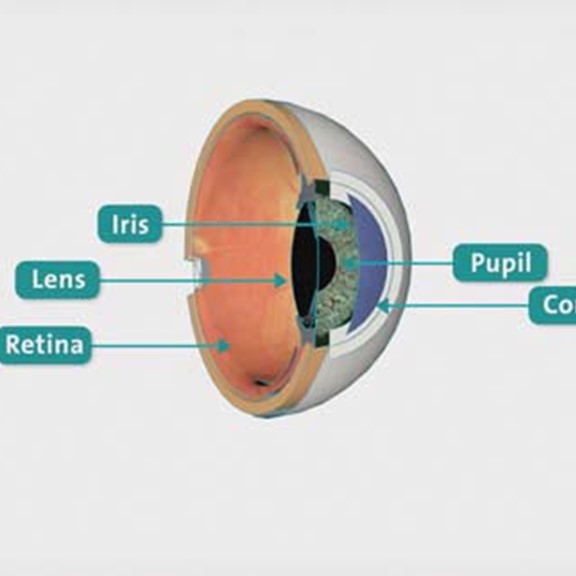Private cataract surgery Chatham
Improve blurred vision caused by cloudy areas on the lens of the eye.
At Spire Alexandra Hospital, we use trusted and clinically proven techniques to improve blurred eyesight caused by cataracts and get you back to everyday life.
During cataract surgery, your consultant will remove the cloudy lens in your eye and insert a clear artificial lens.
Sometimes also called
- Phacoemulsification
At a glance
-
Typical hospital stay
A few hours -
Procedure duration
1 hour -
Type of anaesthetic
Local -
Available to self-pay?
Yes -
Covered by health insurance?
Yes
Why Spire?
- You can usually see a consultant within a few days of enquiry
- Wide range of treatments offered
- Clear pricing with no hidden charges
Cataracts are cloudy areas of the lens of the eye that are normally clear. They can cause blurred vision and other sight problems which can affect your enjoyment of everyday life and your ability to work. Cataracts can usually be removed in a straightforward procedure lasting 20-45 minutes.
Why you might need it
Cataracts are very common, particularly among older people. It's no surprise, therefore, that surgery to remove them is the most common operation performed in the UK, with more than 300,000 procedures carried out each year according to clinical sources.
If you have cataracts you will usually have blurred, cloudy or misty vision. This happens because light cannot pass through the clouded lens to the back of the eye. Or you may see small spots or patches where your vision is less clear. Other symptoms might include double vision or finding it unpleasant to look at bright lights because of the amount of glare.
Our eyesight is fundamental to both our ability to function and for enjoying life's pleasures - such as reading or watching television. It is frustrating to lose the ability to do these activities and have our enjoyment of life curtailed.
Surgery is the only proven effective treatment for cataracts.
According to guidance issued by the Royal College of Ophthalmologists, cataract surgery improves vision and is also associated with improvements in activity, anxiety, depression, confidence and quality of life.
One of our highly trained consultant ophthalmologists will be able to offer you an initial consultation within a few days of contacting us. If you decide to book your cataract surgery with us you'll be able to book an operation at a time and place that suits you.
This will usually involve a 20-45 minute procedure carried out after you have had anaesthetic eye drops to numb the eye surface. Your surgeon will replace the faulty lens with a new one.
While the NHS offers excellent eye care, some local NHS commissioners are limiting surgery to those who have particularly severe symptoms and waiting lists are long.
How much does Cataract removal surgery cost at Spire Alexandra Hospital
| Cataract surgery with eyesight correction | |||
|---|---|---|---|
| Initial consultation | £175 | ||
| Treatment price | £2,681 | ||
| Aftercare | Included | ||
| From price | From £2,856 | ||
|
Monthly treatment price (Loan applicable to the treatment cost and excludes the initial consultation) |
£130 | ||
| Representative example | |
|---|---|
| Loan amount | £2,181 |
| Deposit | £500 |
| Loan period | 18 months |
| Representative APR | 9.9% |
| Total amount repayable | £2,340 |
The price shown is the ‘from price’ (ie the minimum cost of the procedure). Please note that for some procedures the actual price you are quoted may vary significantly and can increase depending on your choice of Consultant (who is an independent practitioner and not an employee of Spire). The fees charged by Consultants and Anaesthetists are set independently and are outside the control of Spire. The price may also vary depending on the type of anaesthetic, implant or drug used, and your medical history.
Spire Alexandra Hospital can provide you with a single, fixed price for your procedure so there are no surprises. Please read Spire Healthcare's terms and conditions for full details of what’s included and excluded in your fixed price when paying for yourself. Finance options are available through our partner Omni Capital Retail Finance Ltd, 10 Norwich Street, London, EC4A 1BD.
Who will do it?
Our patients are at the heart of what we do and we want you to be in control of your care. To us, that means you can choose the consultant you want to see, and when you want. They'll be with you every step of the way.
All of our consultants are of the highest calibre and benefit from working in our modern, well-equipped hospitals or clinics.
Our consultants have high standards to meet, often holding specialist NHS posts and delivering expertise in complex sub-specialty surgeries. Many of our consultants have international reputations for their research in their specialised field.
Before your treatment
You will have a formal consultation with a healthcare professional. During this time you will be able to explain your medical history, symptoms and raise any concerns that you might have.
We will also discuss with you whether any further diagnostic tests, such as scans or blood tests, are needed. Any additional costs will be discussed before further tests are carried out.
Preparing for your treatment
We've tried to make your experience with us as easy and relaxed as possible.
For more information on visiting hours, our food, what to pack if you're staying with us, parking and all those other important practicalities, please visit our patient information pages.
Our dedicated team will also give you tailored advice to follow in the run up to your visit.
The procedure
We understand that undergoing surgery might cause you anxiety and worry - even if cataract removal is the most common surgical procedure in the UK. Our experienced and caring clinical staff will be there with you every step of the way. As well as making it our priority to deliver excellent care and treatment, they’ll answer your questions and provide reassurance if you are worried at any stage.
This procedure usually takes around 20-45 minutes.
You'll be given two sets of eye drops before your treatment begins. The first will dilate or widen your pupils. This makes it easier for the surgeon to see the lens in your eye. The second will provide a local anaesthetic to your eye, ensuring the outer surface is numb. In some cases, the surgeon will inject a local anaesthetic around the eye instead.
You may be aware of light and movement while you are being treated but will not feel any pain.
Your surgeon will make a tiny cut on the surface of your eye and use ultrasound energy to break up the cloudy lens. After removing the fragments with a fine tube, your surgeon will insert an artificial lens.
Occasionally, it might be necessary to make a slightly larger incision in the eye to replace the affected lens. This cut might need to be closed with tiny stitches and these are removed a few weeks later.
*Procedures available may vary on location.
Aftercare
You will usually be able to go home on the same day as your treatment: however you'll need someone to accompany you as your vision will be impaired following the procedure. Your eye will be covered with a protective pad and shield at the end of your treatment. You're likely to need them for at least a day and your surgeon might advise you to keep the shield on at night for a week or two. This is to prevent you rubbing or pushing your eye when you are asleep.
Pain relief
Your eye may ache for 10-14 days. It will also itch or feel sticky for a few days. We will also give you drops to use for the next four weeks to help the eye heal and prevent infection. Your nurse will show you how to put these in and give you advice about caring for your eye. You may find it helpful to wear sunglasses or a hat when you leave us as your eye may be sensitive to the sunlight.
Recovery time
Before leaving the hospital or clinic we may give you a date for a follow-up appointment with your surgeon.
Try not to touch or rub your eye.
You will have blurred vision for a few days. As long as you don't mind blurry vision while your eye adjusts to its new lens or you have glasses fitted, you can read and watch television almost immediately.
How soon you can return to work depends on the nature of the job. Many people are back at work after a few days but if your job involves strenuous activities or potential exposure to liquid or dust that could get in your eye you may need a few weeks off.
The Driver and Vehicle Licensing Agency (DVLA) cautions that you must be able to read a number plate 20 metres away with both eyes open. Up to 90% of people who have surgery for cataracts will eventually have a good enough level of vision to start driving again. Your surgeon will give you advice about when you can resume driving if you have no other eye condition.
End result
You should be enjoying a much clearer view of the world as soon as the side-effects clear 10-14 days after your operation.
How your loved ones can help
Depending on the sight in your other eye you might need some help for a few days with routine tasks such as shopping and you won't be able to drive.
After you leave us
You'll have an appointment to see your consultant again two to six weeks after the operation. On rare occasions, complications can occur after eye lens surgery. If you experience any of these symptoms - severe pain, have loss of vision or increasing redness of the eye, you should contact the hospital immediately for advice. Don’t hesitate to call us.
We will talk to you about the possible risks and complications of having this procedure and how they apply to you.
If you have any questions or concerns about your recovery, we're here to help.
Why choose Spire?
We are committed to delivering excellent individual care and customer service across our network of hospitals, clinics and specialist care centres around the UK. Our dedicated and highly trained team aim to achieve consistently excellent results. For us it's more than just treating patients, it's about looking after people.
Procedures carried out at one of our Spire Healthcare Clinics will be performed under local anaesthetic.
Spire Alexandra Hospital,
Impton Lane
Walderslade
Chatham
ME5 9PG
Cataract surgery: what to expect at Spire Alexandra Hospital
Here at Spire Alexandra Hospital, we are proud to have a team of ophthalmologists (eye specialists) who provide cataract removal surgery centred around your needs.
We offer fast access to tests, scans and treatment and hassle-free booking with appointment times to suit you.
How much does Cataract removal surgery cost at Spire Alexandra Hospital
We offer many ways to pay and our inclusive prices and access to payment plans make it easy and more affordable, even if you don’t have medical insurance.
| Cataract surgery with eyesight correction | |||
|---|---|---|---|
| Initial consultation | £175 | ||
| Treatment price | £2,681 | ||
| Aftercare | Included | ||
| From price | From £2,856 | ||
|
Monthly treatment price (Loan applicable to the treatment cost and excludes the initial consultation) |
£130 | ||
| Representative example | |
|---|---|
| Loan amount | £2,181 |
| Deposit | £500 |
| Loan period | 18 months |
| Representative APR | 9.9% |
| Total amount repayable | £2,340 |
The price shown is the ‘from price’ (ie the minimum cost of the procedure). Please note that for some procedures the actual price you are quoted may vary significantly and can increase depending on your choice of Consultant (who is an independent practitioner and not an employee of Spire). The fees charged by Consultants and Anaesthetists are set independently and are outside the control of Spire. The price may also vary depending on the type of anaesthetic, implant or drug used, and your medical history.
Spire Alexandra Hospital can provide you with a single, fixed price for your procedure so there are no surprises. Please read Spire Healthcare's terms and conditions for full details of what’s included and excluded in your fixed price when paying for yourself. Finance options are available through our partner Omni Capital Retail Finance Ltd, 10 Norwich Street, London, EC4A 1BD.
Procedures offered for cataract surgery at Spire Alexandra Hospital
At Spire Alexandra Hospital, we offer a range of intraocular lenses. Your consultant will help you choose the best option for you. They include:
- Monofocal – corrects either short or long sight, with a choice of three focal points
- Toric – a monofocal lens that helps correct astigmatism (a problem with focusing)
- Multifocal – corrects both near and distance vision, like varifocal glasses
We have a choice of different makes including:
- Bosh + Lomb
- TECNIS 1
We also have special equipment which uses a variety of biometry and refractive techniques to measure the shape and size of your eye. This is so your consultant can calculate the power of your intraocular lens implants.
You may still need to wear glasses afterwards, depending on your eyesight and your choice of lens.
Find a consultant at Spire Alexandra Hospital
Preparing for cataract surgery at Spire Alexandra Hospital
Finding us
You'll find us approximately eight miles from Maidstone and five miles from Chatham. The nearest railway station is Chatham, a 10 minute taxi journey away. We have free parking available for you and your visitors.
Your consultations
Typically, you should be given an appointment with one of our consultants within a few days of your initial enquiry. Your appointment will be in one of our 13 consultation rooms, at which time your consultant may discuss your symptoms or previous diagnoses.
Additionally, sight tests and biometry testing – to calculate the power of new intraocular lens (IOL) may also be carried out if needed.
Cataract surgery: your procedure
Your appointment should take no more than an hour. There’s no need to pack an overnight bag, however, we suggest you bring a change of shirt as fluid may get onto your clothes when cleaning your eye.
If you’ve come with a friend or family member, they’re welcome to wait in our lounge or restaurant while you have your operation.
Before your cataract operation, you’ll meet your healthcare team and you’ll be given a local anaesthetic in your eye, and sometimes also a sedative to relax you.
You’ll then have the procedure, which will involve:
- Making a small incision (cut) into the front of your eye (the cornea)
- Removing your cloudy lens using phacoemulsification – to break up the lens into small fragments
- Inserting your new intraocular lens
Cataract surgery: your recovery
After your cataract surgery, you’ll be taken to a recovery room to relax until your surgeon says you’re ready to go home. This is usually a few hours after cataract surgery.
Although everybody’s different and you should always follow your consultant’s advice, here’s a typical recovery timeline for cataract surgery:
Treatment and recovery timeline

1 week
Any eye pain, redness or itching should go
7-14 days
Stop wearing eye shield at night
10-14 days
Clear eyesight restored
4-6 weeks
Fully back to normal
-
1 week
Any eye pain, redness or itching should go
-
7-14 days
Stop wearing eye shield at night
-
10-14 days
Clear eyesight restored
-
4-6 weeks
Fully back to normal
The treatment described on this page may be adapted to meet your individual needs, so it's important to follow your healthcare professional's advice and raise any questions that you may have with them.
Spire Alexandra Hospital,
Impton Lane
Walderslade
Chatham
ME5 9PG
Get in touch
Sources
https://www.nhs.uk/conditions/cataracts/ https://www.nhs.uk/conditions/cataract-surgery/recovery/
http://www.rnib.org.uk/eye-health/your-guide-cataracts/when-should-i-have-cataracts-surgery
http://www.rnib.org.uk/campaigning-current-campaigns/eye-health
https://www.nice.org.uk/guidance/ng77/chapter/recommendations#referral-for-cataract-surgery
https://www.rcophth.ac.uk/wp-content/uploads/2014/12/2010-SCI-069-Cataract-Surgery-Guidelines-2010-SEPTEMBER-2010-1.pdf
https://www.rnib.org.uk/eye-health-eye-conditions-z-eye-conditions/cataracts-laser-treatment-following-cataract-surgery





